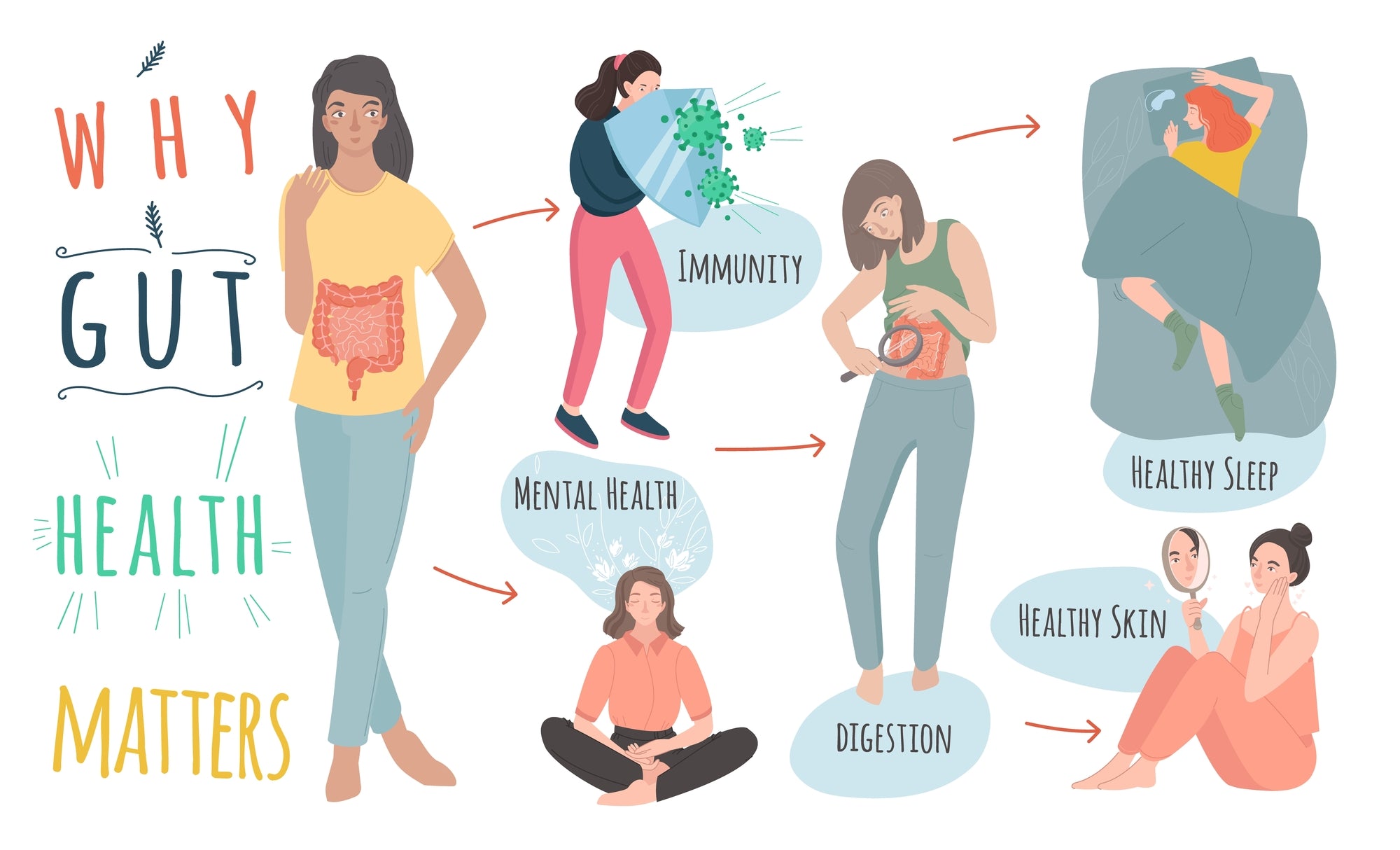Gut Feeling 123: The Surprising Link Between Gut Health and Decision Making
We’ve all had it – that nagging feeling in our gut, a sense that something is right or wrong, a hunch that guides us even when logic falters. We often dismiss it as intuition, a mystical whisper. But what if this “gut feeling” is more than just a feeling? What if it’s a real, tangible connection between our gut health and our ability to make sound decisions? This article explores the fascinating and increasingly well-documented link between your gut and your cognitive function, shedding light on how the health of your microbiome can influence your decision-making process.
The Gut-Brain Axis: A Two-Way Street
The secret lies in the gut-brain axis, a complex and bidirectional communication system connecting your enteric nervous system (the “brain” in your gut) with your central nervous system (your brain). This connection isn’t just a one-way street; information flows constantly between the two. The gut microbiome, the trillions of microorganisms residing in your gut, plays a pivotal role in this communication.
- How the Gut Influences the Brain:
- Neurotransmitter Production: Gut bacteria produce neurotransmitters like serotonin (often associated with mood and happiness) and dopamine (linked to reward and motivation). Imbalances in these neurotransmitters can impact mood, focus, and cognitive function.
- Inflammation: Gut inflammation, often caused by an imbalanced microbiome, can travel to the brain, contributing to “brain fog,” impaired cognitive performance, and increased risk of mental health conditions.
- Vagus Nerve Communication: The vagus nerve, a major nerve connecting the gut and brain, acts as a direct communication channel. Signals from the gut, influenced by the microbiome, are constantly relayed to the brain.
- Immune System Modulation: The gut plays a key role in the immune system. An unhealthy gut can lead to an overactive immune response, affecting brain function and cognitive abilities.
The Impact of Gut Health on Decision-Making
The health of your gut can significantly impact your decision-making abilities in several ways:
- Emotional Regulation: A balanced gut microbiome is linked to better emotional regulation. This means you’re less likely to be overwhelmed by negative emotions like anxiety or stress, which can cloud your judgment.
- Cognitive Function: Healthy gut bacteria support optimal cognitive function, including memory, attention, and processing speed – all crucial for making informed decisions.
- Stress Response: The gut microbiome influences your stress response. A healthy gut can help buffer the effects of stress, allowing for clearer thinking and better decision-making under pressure.
- Intuition and Gut Instinct: Some researchers believe that the gut microbiome can influence our intuition, providing subtle cues that we interpret as “gut feelings.”
Optimizing Gut Health for Better Decisions
Fortunately, improving your gut health is within your control. Here are some key strategies:
- Dietary Modifications:
- Increase Fiber Intake: Fiber feeds beneficial gut bacteria. Focus on fruits, vegetables, whole grains, and legumes.
- Consume Fermented Foods: Yogurt, kefir, kimchi, sauerkraut, and kombucha are rich in probiotics, beneficial bacteria that support gut health.
- Limit Processed Foods and Sugar: These can disrupt the balance of your gut microbiome and promote inflammation.
- Manage Stress: Chronic stress can negatively impact gut health. Practice stress-reducing techniques like meditation, yoga, or spending time in nature.
- Consider Probiotic Supplements: Talk to your doctor about the potential benefits of probiotic supplements, especially if you’ve taken antibiotics or have a history of gut issues.
- Get Enough Sleep: Sleep deprivation can disrupt gut health. Aim for 7-9 hours of quality sleep per night.
- Stay Hydrated: Water is essential for gut health and overall wellbeing.
The Future of Gut-Brain Research
The field of gut-brain research is rapidly evolving. Scientists are constantly uncovering new connections and understanding the profound impact of the gut microbiome on our physical and mental health. Further research is needed to explore the specific mechanisms by which gut health impacts decision-making and to develop targeted interventions for cognitive enhancement.
Conclusion
The link between gut health and decision-making is undeniable. Your gut isn’t just a digestive organ; it’s a complex ecosystem that significantly influences your cognitive function, emotional regulation, and overall well-being. By prioritizing your gut health through diet, lifestyle modifications, and stress management, you can potentially enhance your ability to make sound, informed decisions. Listen to your gut – it might be wiser than you think.
FAQs
1. Can gut health directly improve my decision-making skills?
While more research is always being conducted, current evidence suggests that optimizing gut health can lead to improvements in cognitive function, emotional regulation, and stress response, all of which contribute to better decision-making.
2. How long does it take to see improvements in my gut health and decision-making after making changes?
The timeline varies depending on the individual and the extent of the changes. Some people may experience noticeable improvements within a few weeks, while others may take several months. Consistency is key.
3. Are there specific foods that are particularly beneficial for gut health?
Yes! Foods rich in fiber (fruits, vegetables, whole grains), probiotics (yogurt, kefir, kimchi), and prebiotics (onions, garlic, asparagus) are excellent for supporting a healthy gut microbiome.
4. Can I damage my gut with too much fiber?
While fiber is generally beneficial, increasing your fiber intake too quickly can sometimes cause temporary digestive discomfort, such as gas or bloating. Gradually increase your fiber intake to allow your body to adjust.
5. Should I take a probiotic supplement?
If you are experiencing digestive issues, have recently taken antibiotics, or have a gut imbalance, a probiotic supplement may be beneficial. However, it’s always wise to consult your doctor or a healthcare professional before starting any new supplement regimen.




